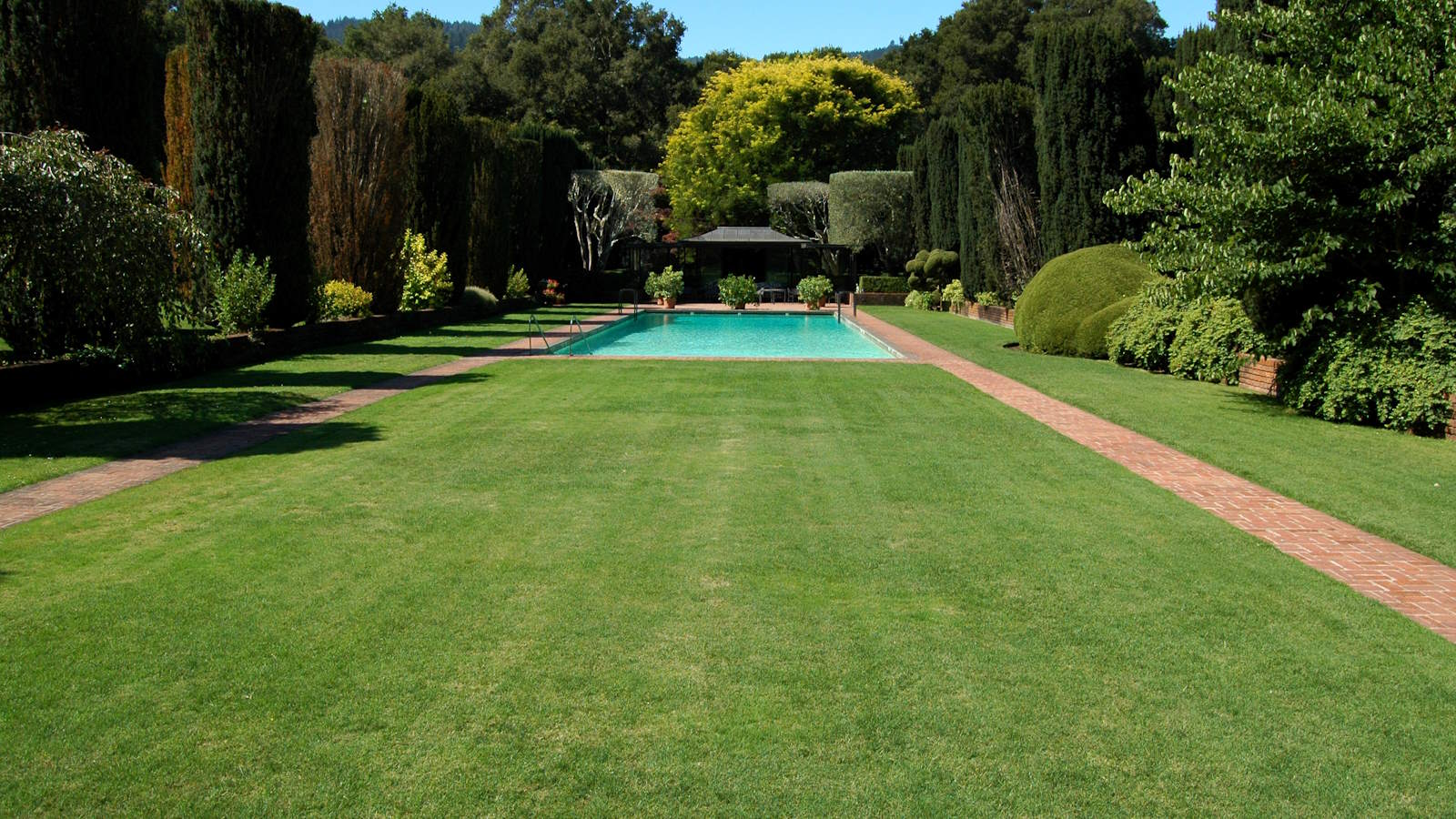
A pristine lawn is the dream for many homeowners and the sight of bare patches of grass will be a real headache. The truth is that several different lawn diseases can result in these unsightly blemishes.
If your lawn is made up of Kentucky bluegrass, then there is a high chance that those bare patches are being caused by necrotic ring spot. It is a perennial fungal disease that appears in fall or spring and is particularly destructive to cool-season grasses.
Maintaining a healthy lawn through good annual lawn care is the best way to avoid necrotic ring spot becoming an issue. It can be a tricky disease to manage if it does appear, but there are preferred ways to combat it and get your lawn looking back to its best.
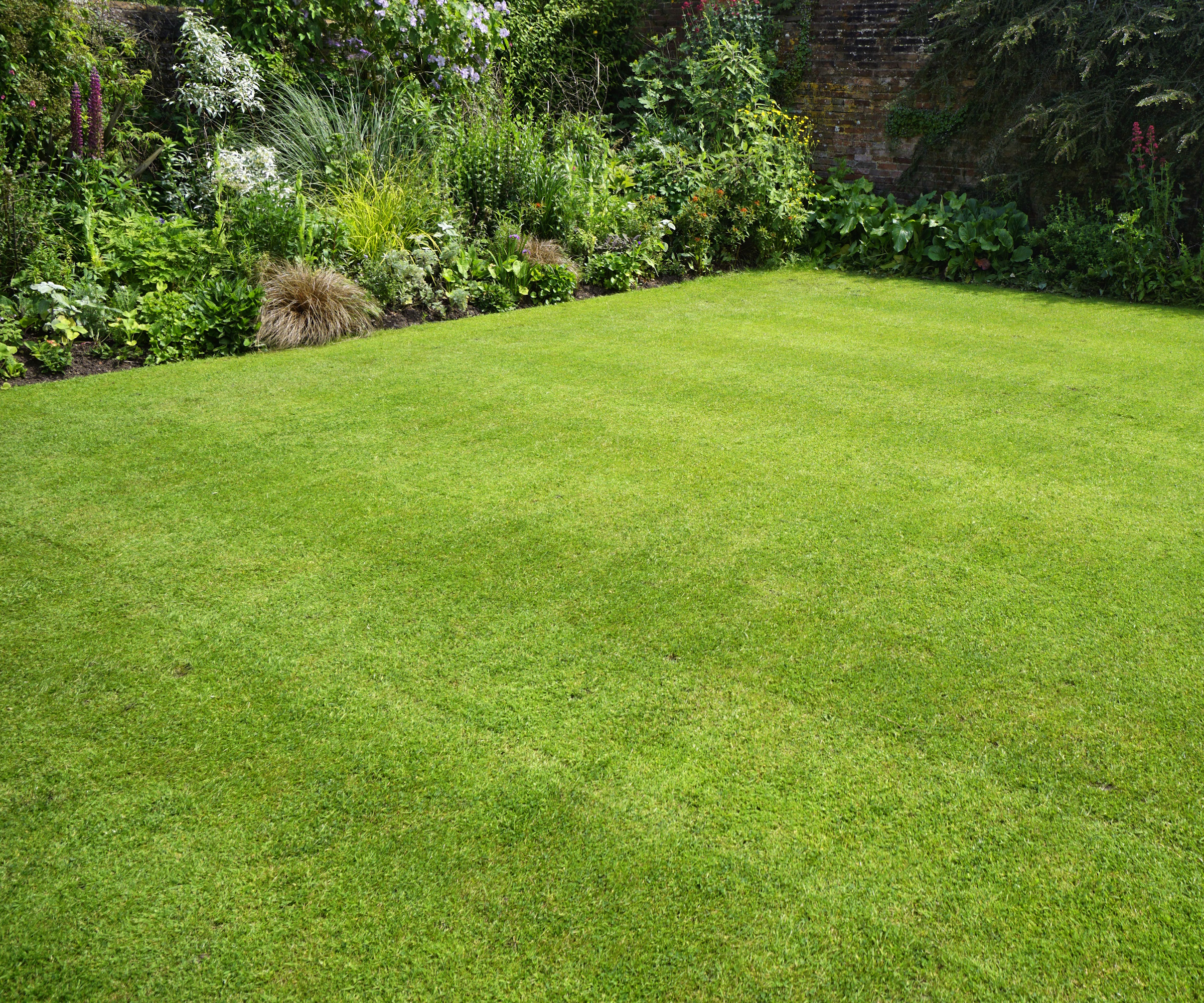
What causes necrotic ring spot
Necrotic ring spot is a common lawn disease caused by a soil-borne fungus called Ophiosphaerella korrae. The fungus affects the root systems of grass and is most commonly seen when the weather is cool and wet. It restricts the grass from taking in water and nutrients and can survive year-to-year in the roots of infected patches on a lawn.
Signs of necrotic ring spot
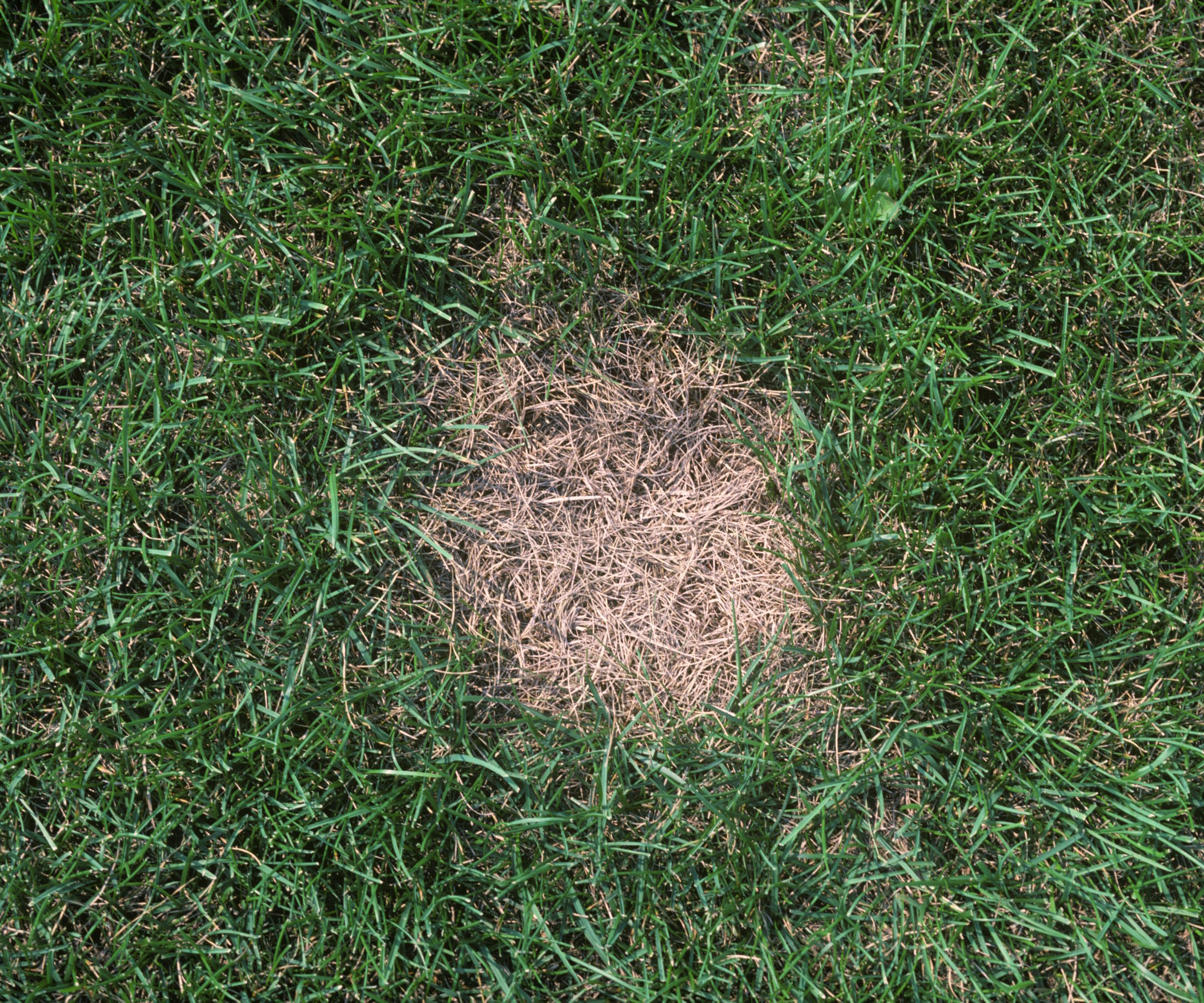
Necrotic ring spot thrives in cool and moist conditions when the soil temperature is between 65-70˚F.
The first signs of necrotic ring spot will be small circular bare patches of dead grass, which can range from a few inches to several feet in diameter. If left untreated, the patches can continue to grow larger each year.
It is important to look out for signs of abnormalities in your lawn. Scott McLeod, the owner of McLeod Landscaping, advises how the damage can start with a bronze tint and infected patches of grass will develop in color and shape over time.
‘The centers of these patches may sometimes contain healthy grass, giving the appearance of rings,’ adds Scott. ‘Affected grass often has a straw-like texture and the roots may appear black and rotted.’
Necrotic ring spot does primarily affect lawns started from sod. After you lay turf, a necrotic ring spot often appears when the sod has been down for two or three years.
How to prevent necrotic ring spot
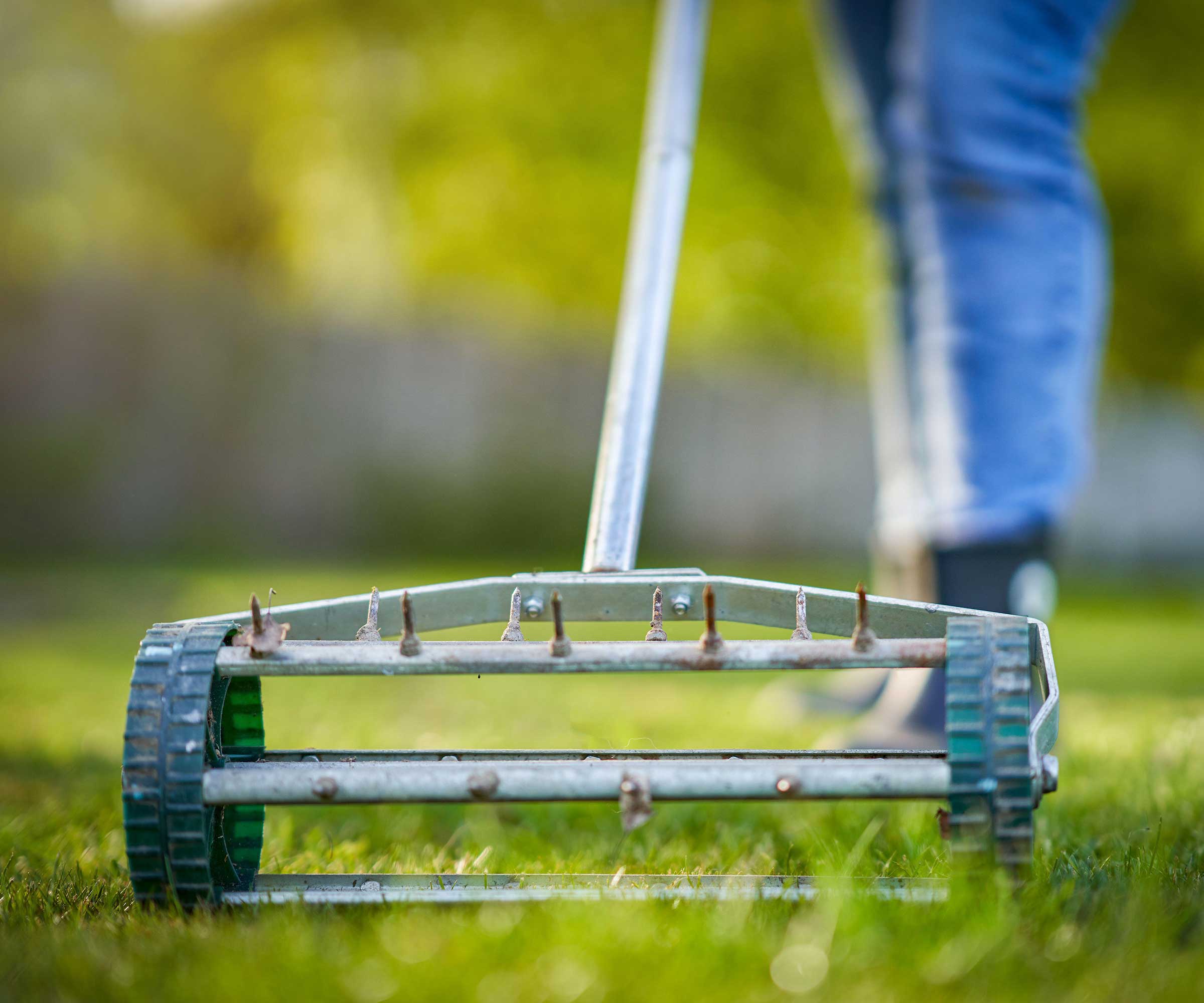
Necrotic ring spot does not need to strike fear into homeowners, as it can be prevented by maintaining a healthy lawn. Jeremy Yamaguchi, CEO of Lawn Love, offers some simple advice for combatting necrotic ring spots.
‘The best way to prevent lawn necrotic ring spot is to practice good lawn care,’ he says. ‘The healthier your lawn, the less vulnerable it will be to disease. Bad watering habits, poor fertilization, and compacted soil can all encourage fungal disease.’
Maintaining good lawn care practises includes improving drainage and reducing compaction through annual aeration. Compacted soils do not drain well, which leaves the grass more susceptible to the fungus.
A thick layer of thatch on the surface also reduces the amount of moisture that can get down to the roots and creates a breeding ground for the fungus. Removing this through dethatching clears out all that dead material and, along with aerating as part of a spring lawn care regime, ensures water, nutrients, and oxygen are available to the grass roots.
How and when you water a lawn could also leave your grass more vulnerable. Ryan Farley, the CEO of LawnStarter, warns how the fungus takes hold in ‘stressed grass’ or grass watered too frequently. He adds: ‘I always recommend watering your grass more deeply and more infrequently - this can be a good way to prevent this disease.’
Feeding with a balanced fertilizer is key to having a healthy lawn. Avoid excessive nitrogen fertilization that can cause lots of foliage growth at the expense of strong roots. Using a balanced and slow-release feed to fertilize a lawn in spring will help you have a green and thick lawn that is less vulnerable to necrotic ring spot.
Shop lawn care products
A heavy duty grass spike aerator with four long and thick spikes, which are 3.5’’ in length, 2/5’’ in diameter. The foot plate lets you maximizes downward force with your body weight.
For revitalizing small to mid-sized lawns, this dethatcher has a 13-amp motor and rakes a 15" wide path to get your job done faster.
A premium blended fertilizer packed with essential nutrients to give you a thick, green lawn You desire. It has both fast acting nitrogen for quick greening, as well as slow release nitrogen for extended feeding for up to 3 months.
How to treat necrotic ring spot
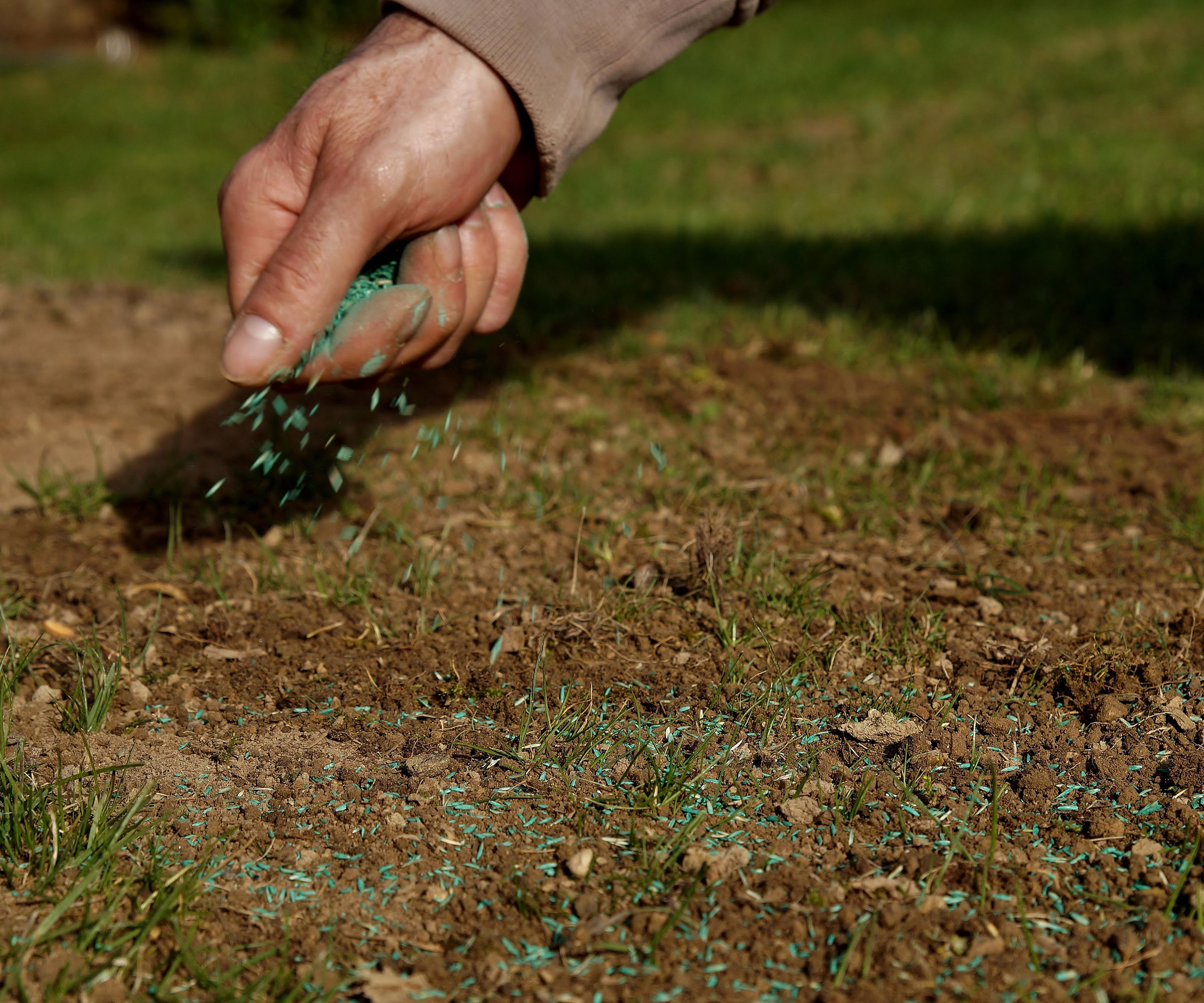
If you identify the potential signs of necrotic ring spots, get a lawn care professional to diagnose the issue. Bare patches in a lawn can be a sign of several lawn diseases, including summer patch, dollar spot, and others. While good lawn care is the best way to avoid a whole manner of lawn diseases, it is beneficial to know exactly which one you are dealing with.
Proper care and management are the best way to fix necrotic ring spot. It may be a long-term fix, but improving the overall health of the lawn can treat the issue. Aerate and dethatch annually, always mow at a proper height, never going too low to stress the grass, and be careful with watering. It can take several years to control and eradicate necrotic ring spot, but a chemical-free approach can be successful.
Fungicides are available to use as necrotic ring spot treatments, however, the use of fungicides should also be done as a last resort. The products should be used every 14 days until the disease is not visible on the lawn.
Such fungicides can also be used in early spring as a preventative measure against necrotic ring spot and other fungal diseases. The timing must be right for preventative applications, namely when the soil temperature is between 60-70˚F for at least three days in a row.
To repair affected areas, overseed the patches with resistant turfgrass varieties. Perennial ryegrass is recommended as opposed to bluegrass, even though some varieties may have low levels of resistance to necrotic ring spot. Perennial ryegrass is a fast-growing grass seed that can fill patches.
A fungicide that control 26 listed lawn diseases, including brown patch, stem & stripe rust, red thread, powdery mildew, necrotic ring spot, and pink patch.
FAQs
What grass is resistant to necrotic ring spot?
Perennial ryegrass is resistant to necrotic ring spot. The disease is majorly a problem for Kentucky bluegrass. There are no Kentucky bluegrass types that are completely immune, but there are some that show some resistance to the issue, including ‘Adelphi’, ‘Majestic’, ‘Midnight’, ‘Eclipse’ and ‘Wabash’.
Overseeding the lawn regularly and reseeding bare patches will make your grass look thicker and healthier. However, you might have grass seed left at the end of each season. To help ensure any leftover seed remains viable, see our dedicated article on how to store grass seed so it remains good to use the following year.







